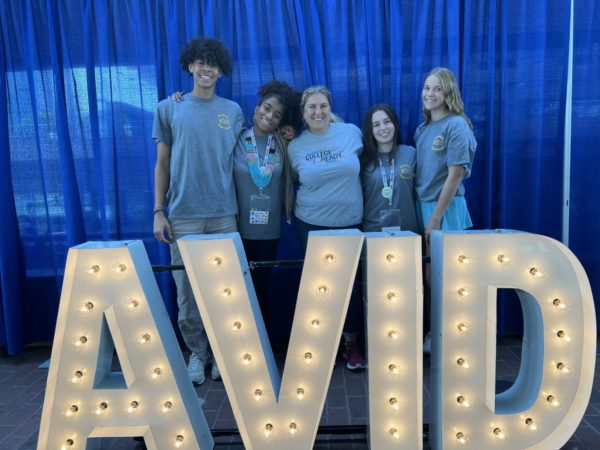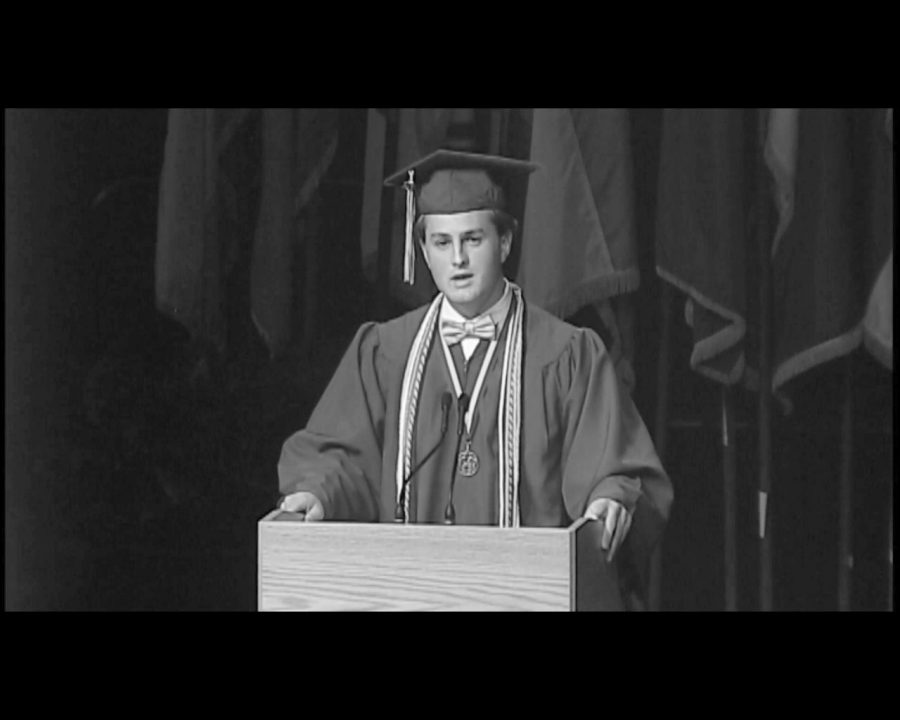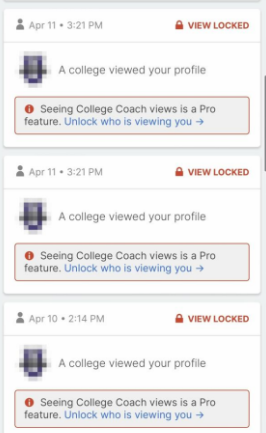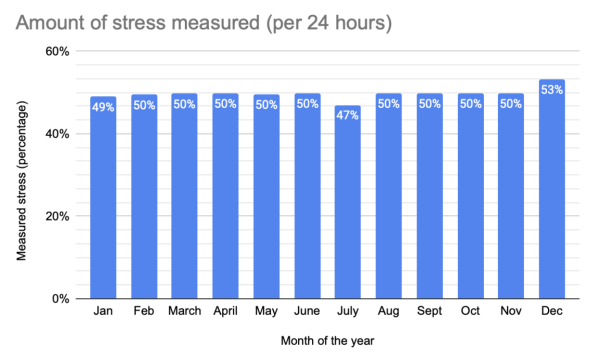Auditions begin for seniors seeking to perform the commencement speech
Photo provided by Jenny Dressel
Tony Cabral (’17) addresses his class at graduation last year. Cabral hoped to inspire his class with a positive message of change in his speech he said.
March 14, 2018
Over the next few weeks, seniors will be writing and auditioning to deliver the commencement speech at graduation in June. Students will be judged by a panel of students and teachers based on the quality of the speech and their speaking ability.
Students must sign up and submit several copies of their speech to be judged on March 23rd so that they can be sent out to judges for scoring on mechanics and conventions. The day of the competition, students will deliver their speeches before the panel and will receive additional feedback based on delivery. The two scores for the categories will then be averaged, and the winner will be decided from there.
Traditionally, the valedictorian would be the student to deliver a speech at graduation rather than allowing any interested student to do so. According to English teacher Sharon Place, Hereford uses a competition to decide who will deliver the commencement speech in order to allow all students to have the chance to address their graduating class.
“[The commencement speech] shouldn’t be limited to those with a certain GPA or that hold leadership positions,” Place stated.
A judge on the panel this year, Corinne Zibell (’19) agreed. “The kid with the highest grades isn’t always the most passionate about school or even the best writer or speaker. The honor should be given to someone who has proven that they have a sense of community and pride in the graduating class.”
“By choosing a student who wants to deliver the speech, there is a better chance that the judges will find a student whose words truly reflect the class,” said Tony Cabral (’17), who delivered last year’s speech. “If the valedictorian isn’t a fair representation of the class, they shouldn’t be giving a speech on their behalf.”
Cabral said that the commencement speech shouldn’t be a platform to share an experience but to inspire and reminisce. “The theme [of my commencement speech] was change; my class was present for the entire renovation of the school. We had been accustomed to change; that’s something that allows us to be pivotal.” Cabral stated.
“It is an opportunity for everyone who has wanted to let themselves be made known to their peers but has never had the chance [speak their mind],” Zibell said. “Students won’t be judged by how well they speak for class presentations or for how well they are known,” she said. “Everyone will be judged equally.”
As with any speech there comes the topic of censorship. “Obviously [the commencement speech] should be appropriate to the occasion,” Place said. “We have had many different speeches over the years but overall the tone and message of the speech should be positive and celebratory.”
“Usually [for high schoolers] censorship means blocking out curse words or negative energy, but none of those things should be there in the first place,” Cabral said. “This is not to dismantle the speech or belittle the message; the school edits because they know what to expect.”
For seniors considering auditioning for the speech, language and confidence are key factors for a commencement speaker. According to Zibell, “Good posture, steady hands, a clear voice and confidence go a long way.”





























